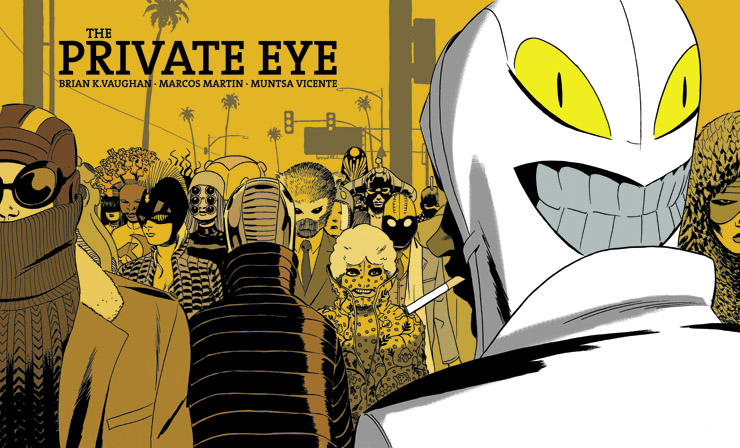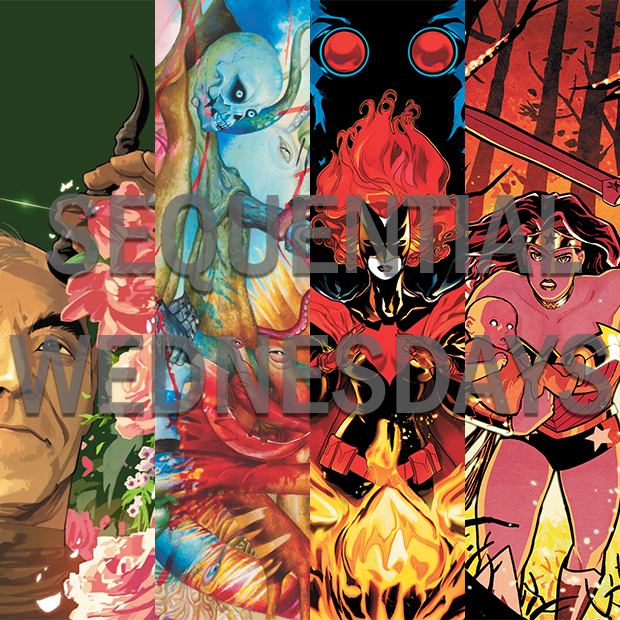The publication of comics has drastically changed in the past 5 years. As scores of e-reader devices hit the market to facilitate the millions of e-books available, a market grew around digital publication of comics for mobile and standard devices. ComiXology was one of the first on the scene to partner with major comic publishers and has become the go-to service for dependable and easy digital comic purchasing. However, like many early purveyors of digital media (think the early years of iTunes), there are security measures on the content such as DRMs, required secure connections, and limited devices quotas that turn a lot of readers away from using the service. Many would rather purchase a physical copy they can read whenever without hindrance from server outages and lend to whomever they like; or do what they’ve been doing for nearly a decade: pirate them.
Comics have been digitally consumed for many years – albeit not wholly legally – long before companies saw the capital gain in legitimizing and streamlining a means of distribution. The prime format comics are read in is CBR/CBZ which is actually an alternative means of compressing a folder of images. For many years, fans would scan their own collection of comics, compress them into CBR files, build catalogs and upload them onto file-sharing servers and torrent trackers as there was no digital alternative available, legitimate or otherwise. An underground movement surged through the comic world as groups such as The Minutemen, The Last Kryptonian and others would upload the entire weeks pulls within 5 days onto major torrent sites, like clockwork. The organization behind scanning western comics is only trumped by the efforts of fans around the globe bringing Japanese manga scans to non-Japanese fans by coordinating often up to a dozen people across the globe to scan, encode, translate, edit, and distribute a variety of Japanese publications every week in many languages.
The question, as with any kind of digital media, is “What about the creators’ money?” This is where Brian K. Vaughan (Saga, Y: The Last Man) and Marcos Martin (Daredevil, The Amazing Spiderman) step in. Akin to the distribution model musical group Radiohead popularized for the release of their 2007 album In Rainbows, the two comics creators build a new publication platform called Panel Syndicate. The model is very simple but requires any extremely rare commodity: faith. Essentially, readers will be able to download each issue of a comic hosted on the platform DRM-free for whatever they want to pay. There aren’t any hoops to jump through – no accounts to create, no phishing-laden surveys to fill out, no requests for any personal information, no pages cluttered with ads; unlike what is expected when claiming free content. There’s just the faith that readers will enjoy the work and pay whatever they think is fair. I know many object to this model for a variety of reasons, some good, most stubbornly unwilling to consider alternatives. I agree it’s an absolute risk to the creators as it is possible that most everyone will choose to pay nothing. That’s where faith comes in. Entertainment is unequivocally nothing without an audience and the path to delivering quality content is, in this comic fan’s opinion, to meet halfway. After going through the process of purchasing and reading the first issue available on Panel Syndicate, I think it’s going to work. Also having 100% of the payment goes straight to the creators doesn’t hurt this model. Perhaps it would have been good to mention that earlier.

Downloadable in PDF, CBR, and CBZ, the first issue of the promised ten of The Private Eye by Vaughan and Martin is stunningly good. The opening follows a private investigator in a futuristic world where the internet no longer exists. Privacy is considered a sacred right and everyone has a secret identity. With loving references to modern media and the P.I. genre as a whole, and fascinating forward-looking science fiction elements, this comic is shaping up to be one of the most interesting and visually appealing comics that I won’t actually be able to get my hands on, physically speaking. The style of the comic radiates off the screen as Munsta Vicente’s sharp color flows lusciously in Martin’s work. Additionally, it’s fantastic to read on a computer as it was created with a widescreen digital display in mind. A serious argument could be made that The Private Eye would be not as compelling in the traditional format of a vertical-based comic.
All in all, I feel it’s important to consider not just the monetary of digital content distribution, but the intent of the creators and the audience. I’m pleased to see fantastic platforms for creators to receive the most of for their efforts, often allowing the audience to pay less. I look forward to the day when all mediums of content have services such as Etsy for products, Bandcamp for music, Humble Bundle or Steam for games, and now Panel Syndicate for comics.
Until forever,
Zach
Pulls
My pulls for 3/20 are:
- Action Comics #18 by Grant Morrison, Sholly Fisch, Rags Morales & Chris Sprouse
- Batwoman #18 by J.H. Williams III, Haden Blackman & Trevor McCarthy
- Wonder Woman #18 by Brian Azzarello, Tony Atkins & Dan Green
- Fables #127 by Bill Willingham, Mark Buckingham & Steve Leialoha
- Mystery Society Special 2013 by Steve Niles & Andrew Ritchie
- Saga #11 by Brian K. Vaughan & Fiona Staples
My pulls for 3/23 are:
- Avatar: The Last Airbender – The Search Part 1 by Gene Luen Yang, Michael Dante DiMartino, Bryan Konietzko, Dave Marshall & Gurihiru
(top image contains cover art of Saga #11, Mystery Society Special 2013, Batwoman #18, and Wonder Woman #18)











Recent Comments